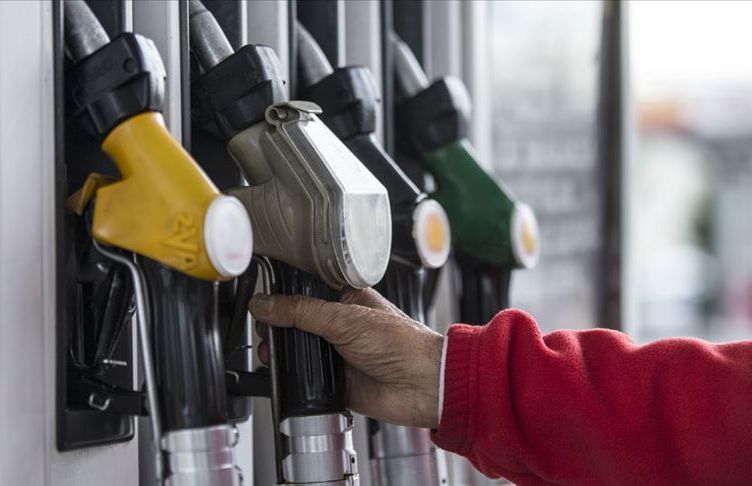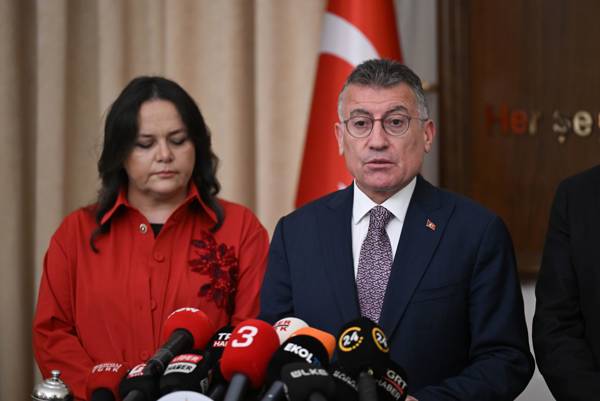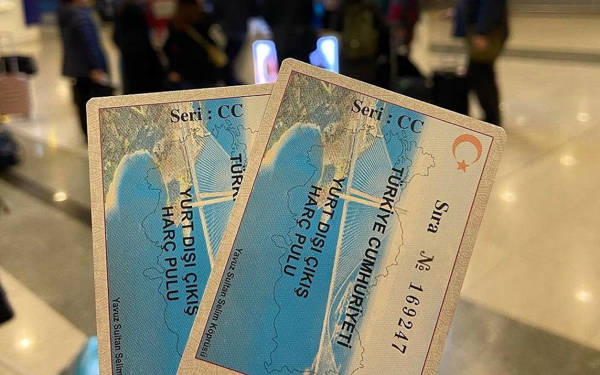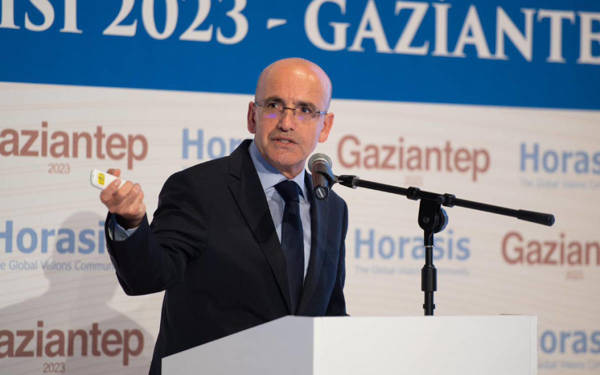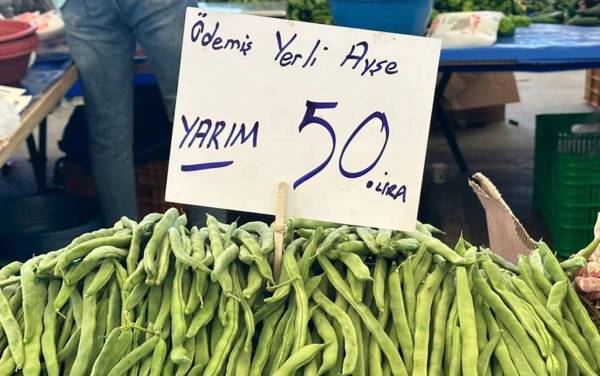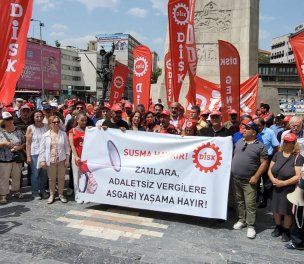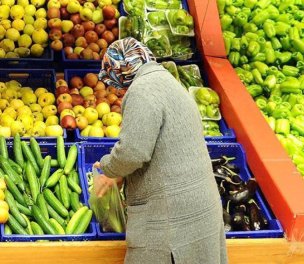Photo: AA/File
• The government, having altered its economic policy after the elections, is persisting with tax hikes.
• The Ministry of Treasury and Finance justified the hikes as a means to cover the expenses incurred by the February earthquakes.
• Critics contend that these measures were unavoidable due to the prolonged period of low interest rates and election spending.
• Allies of the ruling party drew attention to the fact that these increases would impact both the rich and the poor alike, urging the government to implement a "fair tax system."
President Recep Tayyip Erdoğan signed a decree published in the Official Gazette on July 16, announcing a significant increase in the Special Consumption Tax (SCT) for fuel products.
Under the new regulations, the SCT rates have been raised by 5 lira for gasoline and diesel, and by 4 lira for LPG. Previously, the SCT for gasoline stood at 2.52 lira per liter, but it has now skyrocketed to 7.52 lira per liter (1 US dollar = 26.25 Turkish lira).
Similarly, the SCT for diesel has jumped from 2.05 lira to 7.05 lira per liter. As a result, the prices at the pump have surged, with gasoline increasing from 28 to 34 lira per liter and diesel reaching from 26 to 32 lira per liter.
This sudden increase in fuel taxes marks the most substantial fuel price hike on record. The impact of the SCT hike is not limited to gasoline and diesel; it also affects natural gas prices, with the SCT rate for natural gas rising from 0.0230 lira to 0.0747 lira per cubic meter, rising over 200%.
Earthquakes and election spending
The Ministry of Treasury and Finance justified these price hikes by claiming that they are necessary to cover the financial burden caused by the devastating earthquakes that struck 11 cities on February 6, resulting in the loss of 50,000 lives.
However, critics argue that the government's extravagant election spending leading up to the dual poll in May, coupled with the prolonged low-interest rate policy, have also played a significant role in these hikes.
Return to orthodox policies
Following the elections, there were expectations of various austerity measures and tax increases, especially after the appointment of Mehmet Şimşek, a staunch advocate of orthodox economic policies, as the minister of treasury and finance. The newly appointed Central Bank management took decisive action by raising interest rates for the first time in 27 months, with the policy rate surging from 8% to 15% in June.
This recent SCT hike follows another decree issued by President Erdoğan just last week, which raised the Value Added Tax (VAT) by 2 percentage points on numerous products and services. Consequently, the VAT rate has increased to 10% for specific goods and 20% for others, while some products now face a hefty 20% VAT compared to the previous 8%.
The government has previously implemented measures to alleviate the financial strain on the public, including a substantial 34% increase in the minimum wage in June, followed by an 86% hike in the minimum salaries of civil servants and a 25% boost in retirees' pensions in July.
"The bitter pill"
Commenting on the hikes for the Mesele Ekonomi YouTube channel, Atilla Yeşilada, an economist, acknowledged the inevitability of these tax increases, noting, "These hikes are hurting all of us, but they also demonstrate to capital owners that Erdoğan is willing to share the burden and take the bitter pill himself. These increases have the potential to influence local elections and burden the already financially-strained citizens."
As to why the hikes were implemented, Yeşilada argued that the previous tax increases had covered around 300 billion lira whereas the parliamet had approved an additonal budget over 1 trillion lira.
Economist Mahfi Eğilmez expressed concerns about the ripple effects of rising fuel prices, emphasizing that the surge in prices would have a knock-on effect on various goods and services. He warned that this could potentially disrupt the declining trend of inflation, pushing it towards a rapid increase.
"The first and only condition for the economy to return to normal conditions ... and for savings to increase is raising interest rates to the level of inflation," he wrote on his personal website. "However, abruptly raising interest rates to that level, which has been kept so low, would also undermine the remaining institutions of the economy."
"Same tax for the rich and the poor"
Criticism over the price hikes has not only come from opposition parties but also from allies of the ruling party.
Kemal Kılıçdaroğlu, leader of the main opposition Republican People's Party (CHP), criticized the increases, stating, "Rising fuel prices mean rising prices for everything, from a needle to thread."
Meral Akşener, the leader of the Good (İYİ) Party, expressed that the recent salary raises have become meaningless due to the price hikes.
Mustafa Destici, leader of the Great Unity Party (BBP), which formed an alliance with the ruling party in the elections, took to Twitter and wrote that the adjustment was "unacceptable and unfair."
He further commented on the indirect nature of the Special Consumption Tax (SCT), stating, "SCT is an indirect tax regulation, meaning that both the poor and the rich, those with low and high incomes, pay the same amount of tax.
"Instead of imposing such significant price hikes on fuel, for example, the subsidies granted to those with high incomes for natural gas or the billions of lira in government aid given to political parties could have been eliminated."
Fatih Erbakan, the leader of the New Welfare Party, emphasized in a written statement that the price hikes would affect the rich and the poor equally. Erbakan stated, "We must transition to a fair system where the rich pay more and the low-income earners pay less in taxes."
Metin Külünk, a prominent figure from the ruling Justice and Development Party (AKP) and a former member of parliament, drew attention to the timing of the recent tax increases, coinciding with the anniversary of the 2016 coup attempt. He wrote, "The increase in SCT for fuel being announced on the night of July 15, right after the recitation of salah (prayers), seems like a dirty operation.
"Whoever is responsible for announcing the SCT hike while the Sala is being recited should be immediately removed from their position. Additionally, we should also consider the fact that this hike will fuel inflation." (VK)




